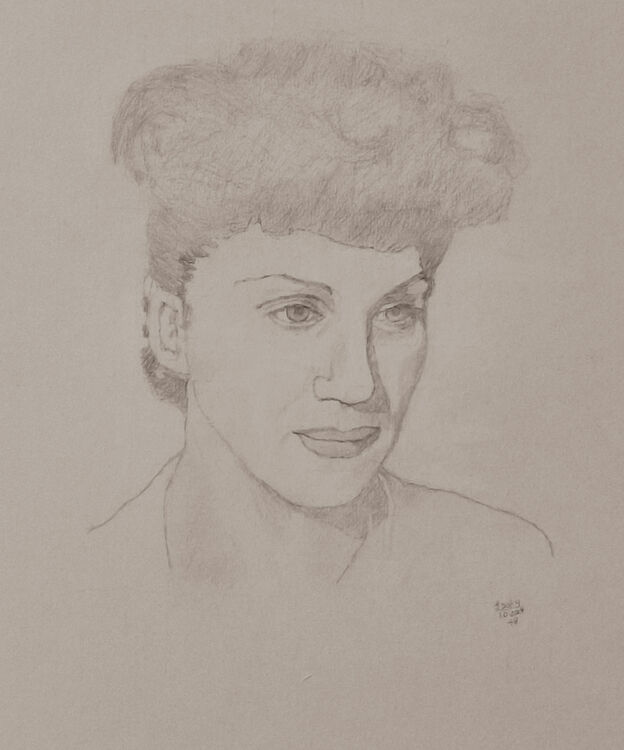
Liuba Kadison
Liuba was born in Kovno, Lithuania in 1905 and was active for decades in Yiddish theatre, in both Europe and the United States. She moved with her family to Vilna during World War I, and then to Warsaw while she was still in her teens. Her father, Leib, was a co-founder of the famed Vilna Troupe. Her mother, Hannah, also played with the troupe.
From a young age, Liuba was playing juvenile roles with the famed Vilna Troupe and moved into female leads as she grew.
In an interview with the author Martin Boris, Liuba stated:
“The Vilna Troupe was a very special theatre. It was a unique theatre of advanced Yiddish theatre in the language -- and also in the repertoire that we played -- that was actually a theatre, a cosmopolitan theatre in the Yiddish language -- because we played not only Yiddish plays. We played Yiddish plays, we played in Hebrew, we played Peretz Hirshbein, but we also played Russian plays by Andreyev, Gorky, Nadir, and other plays, and even French plays -- we played “The Miser” by Molière … “
With the Vilna Troupe, Liuba played the bride, the female lead, in Ansky's “The Dybbuk,” and starred in Osip Dymow's “Yoshke Muzicant,” which was directed by her future husband, Joseph Buloff.
This play was a major success in Bucharest, drawing the attention of Maurice Schwartz, the founder and director of the Yiddish Art Theatre.
Liuba and Joseph Buloff moved to the United States in 1927, and both worked with Schwartz at the Yiddish Art Theatre in New York City. Both were fixtures in the Yiddish theatre scene in New York for many years after they arrived.
They also performed in South American tours in 1933 and 1940.
Liuba played the wife in a 1951 Yiddish adaptation of “Death of a Salesman” to her husband's Willy Loman.